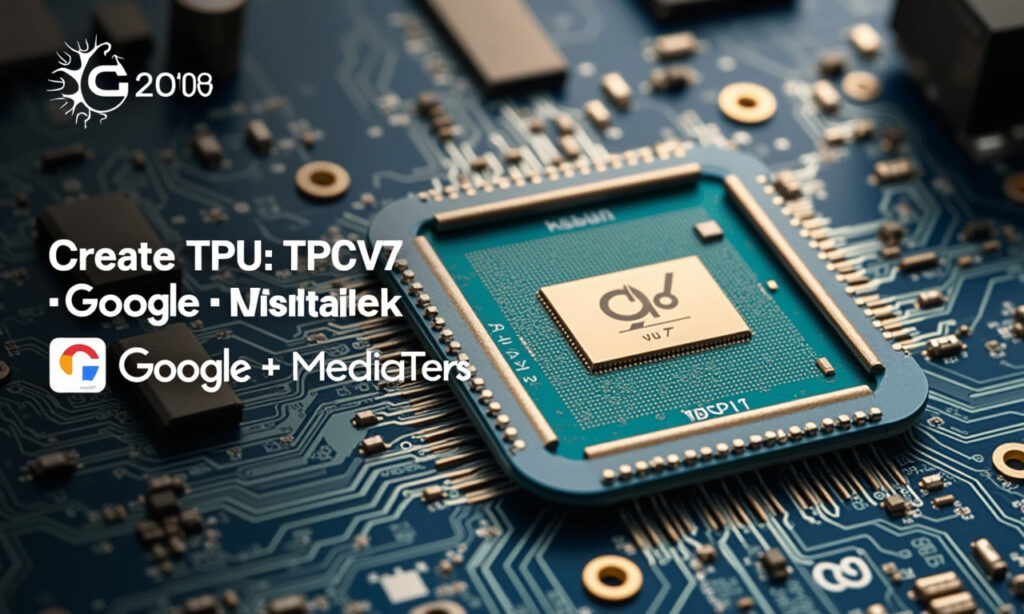In a significant move to advance its AI capabilities, Google has announced a new partnership with MediaTek to develop the seventh generation of its Tensor Processing Units (TPUs), known as TPU v7. This collaboration marks a strategic shift from Google’s previous exclusive partnership with Broadcom.
The Partnership and Its Goals
Google’s decision to partner with MediaTek is driven by the need to reduce manufacturing costs and increase operational efficiency. MediaTek, with its strong relationship with Taiwan Semiconductor Manufacturing Company (TSMC), offers cheaper solutions compared to Broadcom. This partnership is expected to yield substantial cost savings for Google, which reportedly spent between $6 billion and $9 billion on TPU chips last year[1][3][5].
Design and Manufacturing
Google will lead the core architecture design of the TPU v7, while MediaTek will handle the I/O module and peripherals. TSMC will be responsible for the manufacturing of these chips, which are scheduled to go into production in 2026. This division of labor allows Google to leverage MediaTek’s cost advantages without compromising on the core design and performance of the TPU[1][3][5].
Technical Advancements
The TPU v7 is designed to accelerate machine learning operations, particularly those related to neural networks. Optimized for Google’s TensorFlow framework, these units will improve both training and inference processes, efficiently handling the high computational demands of deep learning models. The new TPU is expected to offer enhanced performance and energy efficiency compared to its predecessors, with a focus on minimizing data movement and latency on-chip[1][3].
Strategic Implications
This partnership is part of Google’s broader strategy to reduce its dependence on NVIDIA hardware by designing proprietary AI chips for internal R&D and cloud operations. By developing custom chips, Google aims to strengthen its AI infrastructure, making it more self-sufficient and competitive in the industry. The collaboration with MediaTek could also lead to more specialized chip designs, such as inference-focused TPU v7 chips, while Broadcom might focus on training architecture[1][3][5].
Practical Applications
The TPU v7 will have significant practical applications across various sectors. For Google Cloud customers, these chips will provide enhanced computational power for large-scale training and inference tasks. The ability to manage massive parallel processing and efficient memory access will be crucial for applications involving Large Language Models (LLMs), Mixture of Experts (MoEs), and advanced reasoning tasks[1][3].
Future Outlook
As the AI landscape continues to evolve, Google’s move to partner with MediaTek underscores its commitment to continuous innovation and cost optimization. With other companies like Amazon Web Services (AWS) also exploring alternatives to NVIDIA, the race to develop efficient and powerful AI chips is heating up. Google’s strategy positions it well to remain at the forefront of AI technology, enhancing its capabilities in both training and inference processes[3].
